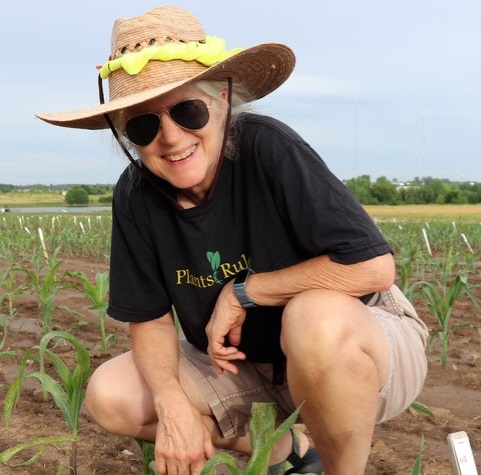Toni Kazic
Toni Kazic
Toni Kazic is a computational biologist who wants to understand how biological networks produce complex phenotypes and how to use that information to improve the prediction of phenotypes for selective breeding and network inference. Her group uses a collection of maize mutants that produce a set of related, quantifiable phenotypes — lesions, or spots on leaves. These mutants define a high-dimensional phenotypic manifold, and each lesion is a point on the manifold. What are these manifolds like? How can we navigate them? How can we use this information to predict novel phenotypes and infer their mechanisms? To scale up our field experiments for better sample size and more robust quantitation, the group is combining high throughput phenotyping with consumer-grade drones with developing computational methods to reconstruct plants in three dimensions, track the development of leaves and lesions during the field season, and map the phenotypic manifold.
Her Ph.D. is in bacterial genetics from the University of Pennsylvania, Philadelphia, in 1984. She was a postdoctoral fellow at the Institute for Cancer Research, Fox Chase Cancer Center, Philadelphia, and Washington University, St. Louis in bacterial genetics before switching to computational biology. She has been a fellow at the NIH (Division of Computer Research and Technology), Argonne National Laboratory (Division of Mathematics and Computer Science), and ICOT, the Japanese Institute for Fifth Generation Computer Technology. She has served as a Program Director at the National Science Foundation in computational biology, as board member and secretary of the International Society of Computational Biology, and as an associate member of the Joint Nomenclature Commission of the International Union of Pure and Applied Chemistry and the International Union of Biochemistry and Molecular Biology (the “Enzyme Commission”). She was elected a fellow of the American College of Medical Informatics in 2004.
